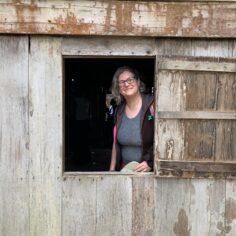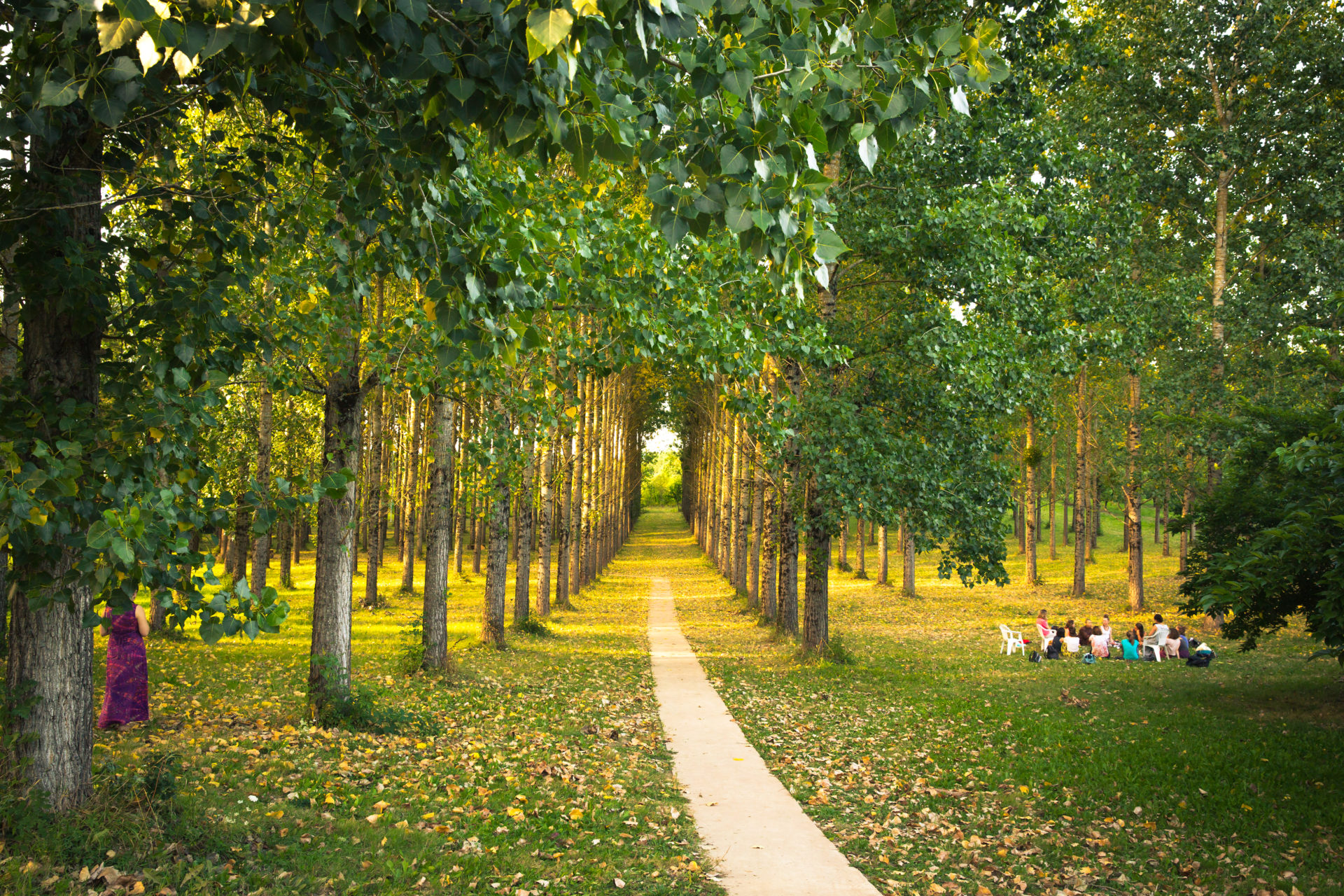Interview with Alex Cline
By Karen Hilsberg in February 2018
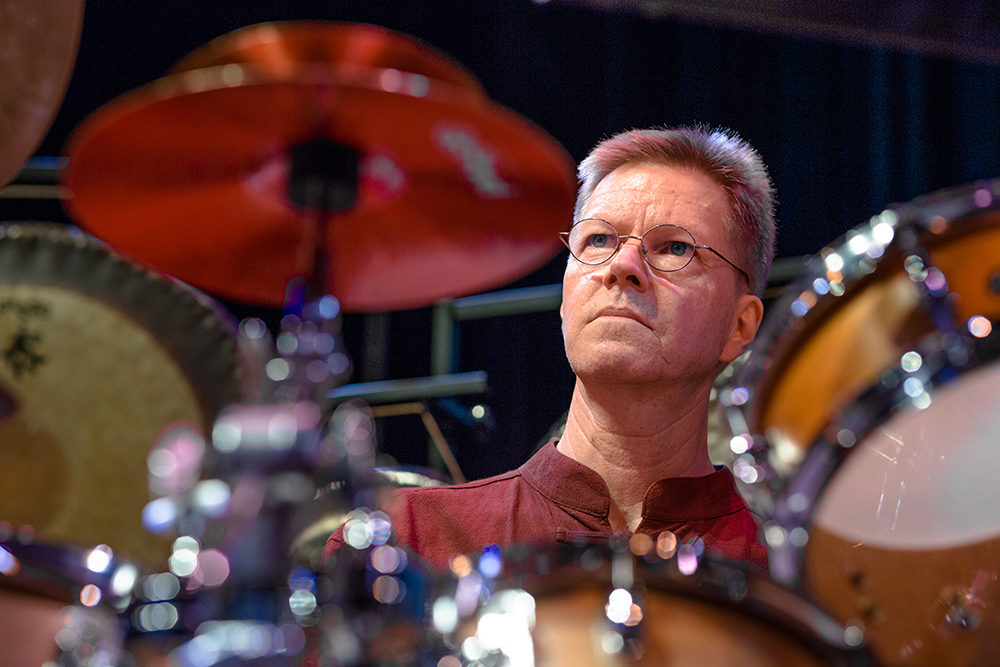
On the occasion of the release of Oceans of Vows (1), Karen Hilsberg sat down to talk to Alex Cline, an Order of Interbeing member, a professional jazz musician, and a composer. Oceans of Vows was initially composed and performed live as a full-concert-length piece of music dedicated to Thich Nhat Hanh in 2015.
Interview with Alex Cline
By Karen Hilsberg in February 2018

On the occasion of the release of Oceans of Vows (1), Karen Hilsberg sat down to talk to Alex Cline, an Order of Interbeing member, a professional jazz musician, and a composer. Oceans of Vows was initially composed and performed live as a full-concert-length piece of music dedicated to Thich Nhat Hanh in 2015. The music was then recorded in the studio. A beautiful boxed set has been produced, with two CD’s of the fourteen-piece Flower Garland Orchestra performing Oceans of Vows along with two exquisite booklets with essays about the music, excerpts from Thich Nhat Hanh’s writings, and excerpts from the Avatamsaka Sutra upon which the piece is based.
Karen Hilsberg: How did you come to compose a full-length-piece based on the Avatamsaka Sutra?
Alex Cline: I was offered the opportunity to realize a dream project via a grant that I was invited to apply for. I chose to compose a piece based on excerpts from the Avatamsaka Sutra because I liked the thematic material of the sutra so much and its vivid, poetic, and celestial language, so I thought I could come up with something musically interesting. I got the grant and wrote the piece.
The Avatamsaka Sutra is extremely long, so most of my time was spent selecting what I was going to use, which was not easy. That process led me to include some of Thay’s poems in order to create a more personal, human, and grounded perspective on the themes contained in the sutra. This also allowed me to create something of a tribute to Thay, which I later happily realized we would be able to perform on his 89th birthday. So everything came together in a way that was not only pleasing to me but also highly unexpected.
KH: How do you practice in everyday life, and what guidance do you give to other practitioners?
AC: I have a part-time day job at UCLA. I have my musical life, family life, and spiritual life. Since becoming an official student of Thay in 2005, one of the things that has been really important for me has been for all of these departments in my life to blend into one cohesive whole, where no particular component gets more energy or attention than another. If anything, my family life and spiritual practice receive the most energy.
Take my typical workday. When I wake up, I remember the waking up gatha, which is another topic I could go on forever because that’s a challenging one for me. Lately, I’ve been experiencing a feeling of heaviness and even a pervasive feeling of sadness when I start the day, so I have to work through that if I can.
One practice that gets me through the morning is doing walking meditation from my car in the parking lot through the North Campus, which is very beautiful. Thankfully, it is also a part of the campus where Thay and the Sangha have done walking meditation in the past. I try to walk mindfully everywhere while I am at work.
Like so many people, I sit in a chair in front of a computer screen at work. I don't enjoy that much. One way I find a lot of enjoyment in my mornings is when I take my tea breaks. Tea has been a profoundly meaningful pursuit of mine for many years. I brew up some high-quality tea and put it in a thermos every morning, and I drink it at various times during the morning. And when I drink my tea, I only drink tea. This helps create some spaciousness in my day. I have time in the late morning to go outside and sit straight to have the rest of my tea with a little snack in mindfulness. I taste the tea, holding the cup with my two hands, and I enjoy it a lot. Then I walk mindfully back to the office, where my cubicle is filled with inspiring and nourishing images.
I’ve been incredibly fortunate in that I not only can attend a Sangha regularly, but it’s five minutes from my house. We're also only a couple hours' drive from Deer Park Monastery. Thay always says that it is essential to practice with a Sangha, and I have to agree that it has made a huge difference and not just in terms of my own practice, but also in terms of personal relationships, friendships, and deep connections with other people. The Sangha is my family. In fact, many people who were involved in the Oceans of Vows project are from the Sangha.
It’s been an amazing opportunity for me to practice with others and be able to grow, deepen my commitment, have the opportunity to bring my own experience and insights into sometimes leading the Sangha, and embody the path as best as I can. When I ordained as a member of the Order of the Interbeing, my aspiration was to truly be the Buddha's and Thay’s continuation. Of course, all of us as students already are Thay’s continuation, but what I meant is to be his continuation in every way I can. Although the monk within me seems strong, I can’t be a monk!
That aspiration is one of the things I try to remind myself of when I’m walking around UCLA, driving around Los Angeles, or playing concerts where I am often in the midst of very powerful, diverse and sometimes distracting life currents. It’s very humbling, but sometimes it’s quite daunting. Sometimes I think it would be a lot easier if I could just put on a robe and shave my head. Then everyone would look at me and say, “Okay, he’s in a different place. Maybe I don’t need to go in this direction if I am going to be around this guy.” But I imagine that it would create different challenges. So I try to maintain my peaceful steps and as much equanimity as I can, which is not easy most of the time. Fortunately, I've got each new step and breath, where I can keep returning.
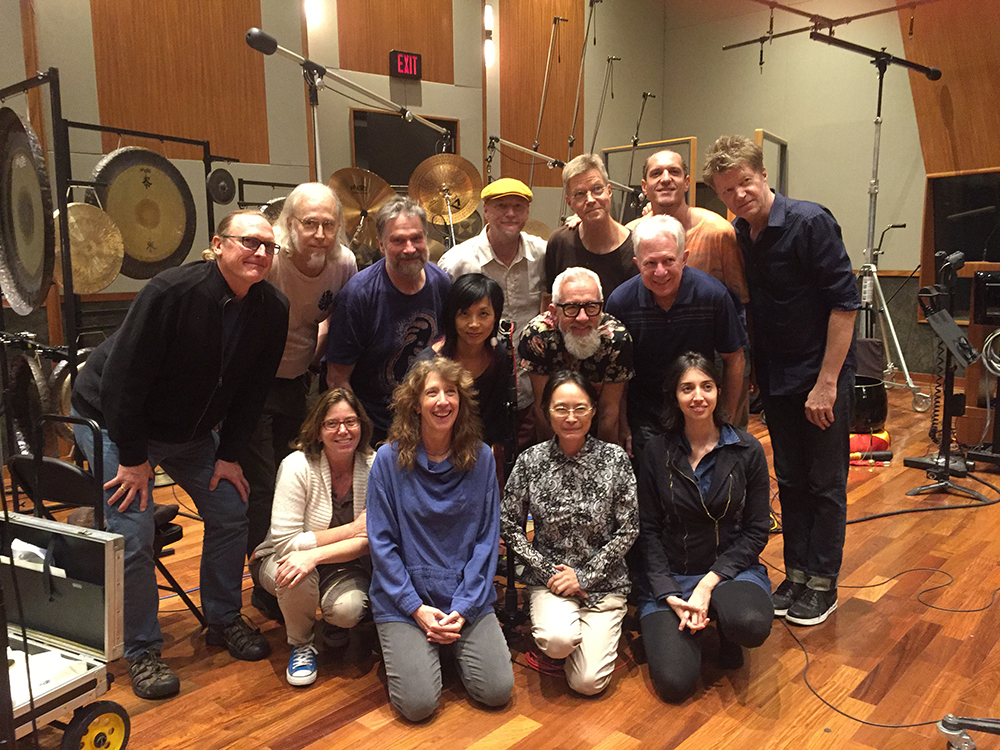
KH: I think what you bring to the Sangha is that you are very real. You share your challenges and struggles. That’s really helpful for people. Sometimes people may think, “You’ve got it all together” or “You are just cruising,” but it’s not like that. It’s a practice every day.
AC: Another thing is some people are very comfortable manifesting the different forms that the practice takes. It can also be easy to hide behind the form, and then you can fool people that way.
KH: But you can’t fool yourself.
AC: The key is to practice as beautifully as you can and be yourself. “Be beautiful, be yourself."
KH: Maybe you can fool yourself; however, you can’t fool the Buddha.
AC: The Buddha in you knows. Showing vulnerability and showing where the challenges are is one of the most helpful things people can offer in the Sangha. This is true especially for those who appear to have the form together because assumptions are easy to make. We know how wrong perceptions can mess things up.
KH: What would you do or say if you could sit and enjoy a cup of tea with Thay?
This is a thought I have long carried with me, and years ago I actually composed a piece for fourteen temple bells called Tea for Thay. I think I would just want to enjoy being fully present and drinking my delicious tea. There would be no need for words and language other than silent communion and true transmission. Like the music, everything is held in that deep, profound, beautiful silence.
1 Cryptogramophone, 2017.
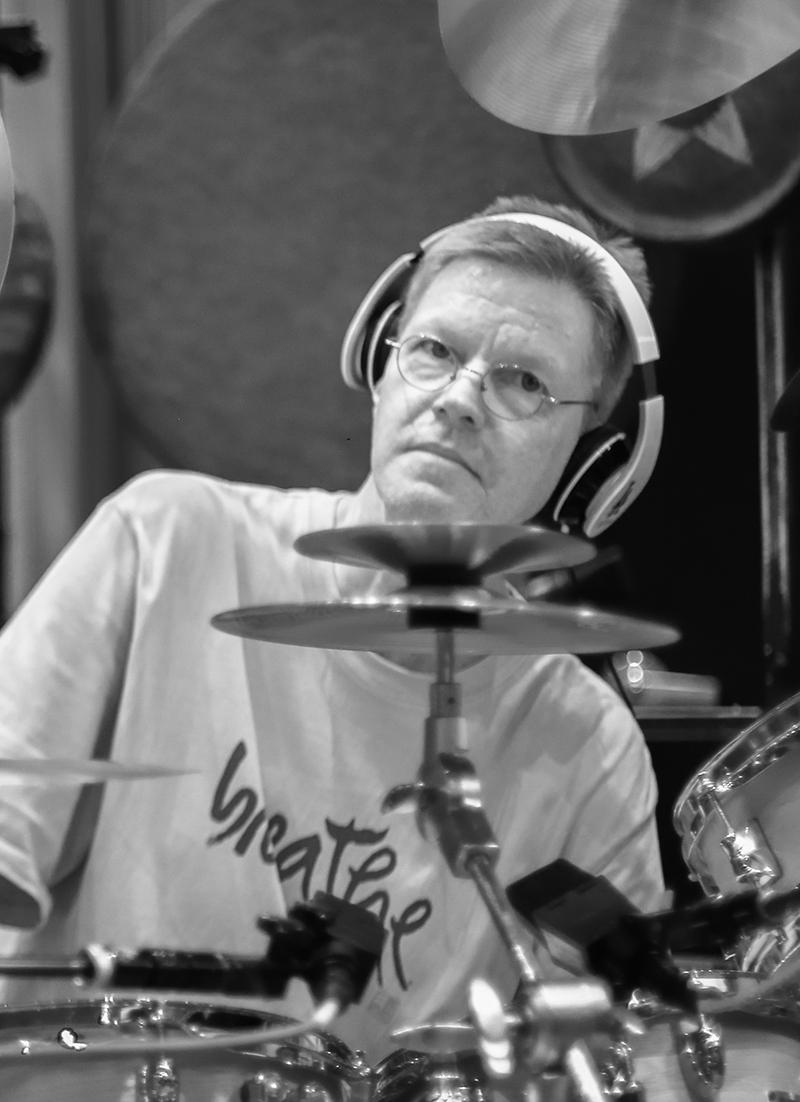
Alex Cline, Chan Phat Son (True Buddha Mountain), practices with Organic Garden Sangha and Flower Eyes Sangha—both in Culver City, California—and at Deer Park Monastery. He was ordained as a member of the Order of Interbeing by Thich Nhat Hanh in 2009. For more information about Oceans of Vows CD’s, visit the website at cryptogramophone.com/catalog/oceans-vows.
EXCERPT FROM THE FLOWER GARLAND DISCOURSE: THE TEN GREAT ASPIRATIONS OF SAMANTABHADRA BODHISATTVA
I aspire to use the Great Ocean of Sound,
giving rise to words of wonderful effect
that praise the Buddha’s oceans of virtues,
in the past, present, and future.
I bring these beautiful offerings:
garlands of the most beautiful flowers,
incense, music, perfumes, and parasols,
all to adorn the Tathagatas and their lands.
Bringing food, robes, and fragrant flowers,
torches, sandalwood, sitting mats,
the finest adornments here in abundance —
an offering to the Tathagatas.
Inspired by Samantabhadra’s vow,
I bring my heart, wide with deep understanding,
with loving faith in the Buddhas of the Three Times,
as an offering to the Tathagatas everywhere.
Avatamsaka Sutra 36,
Taisho Revised Tripitaka 279 (2)
